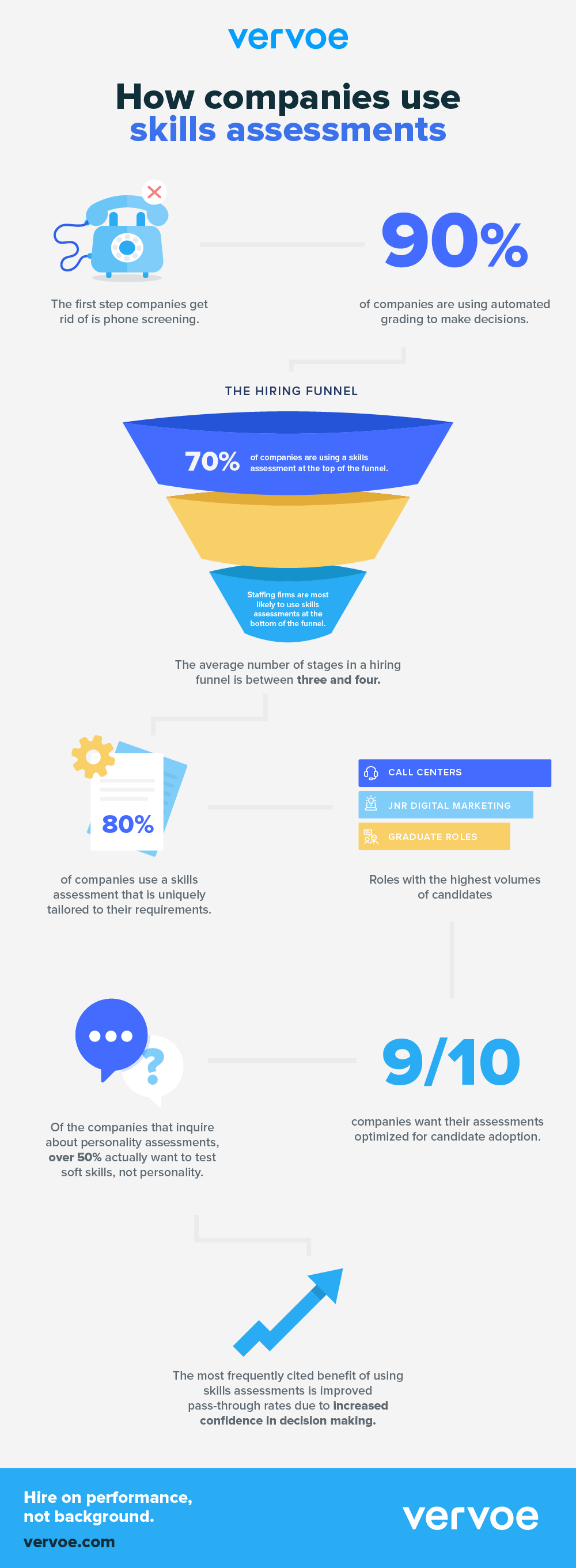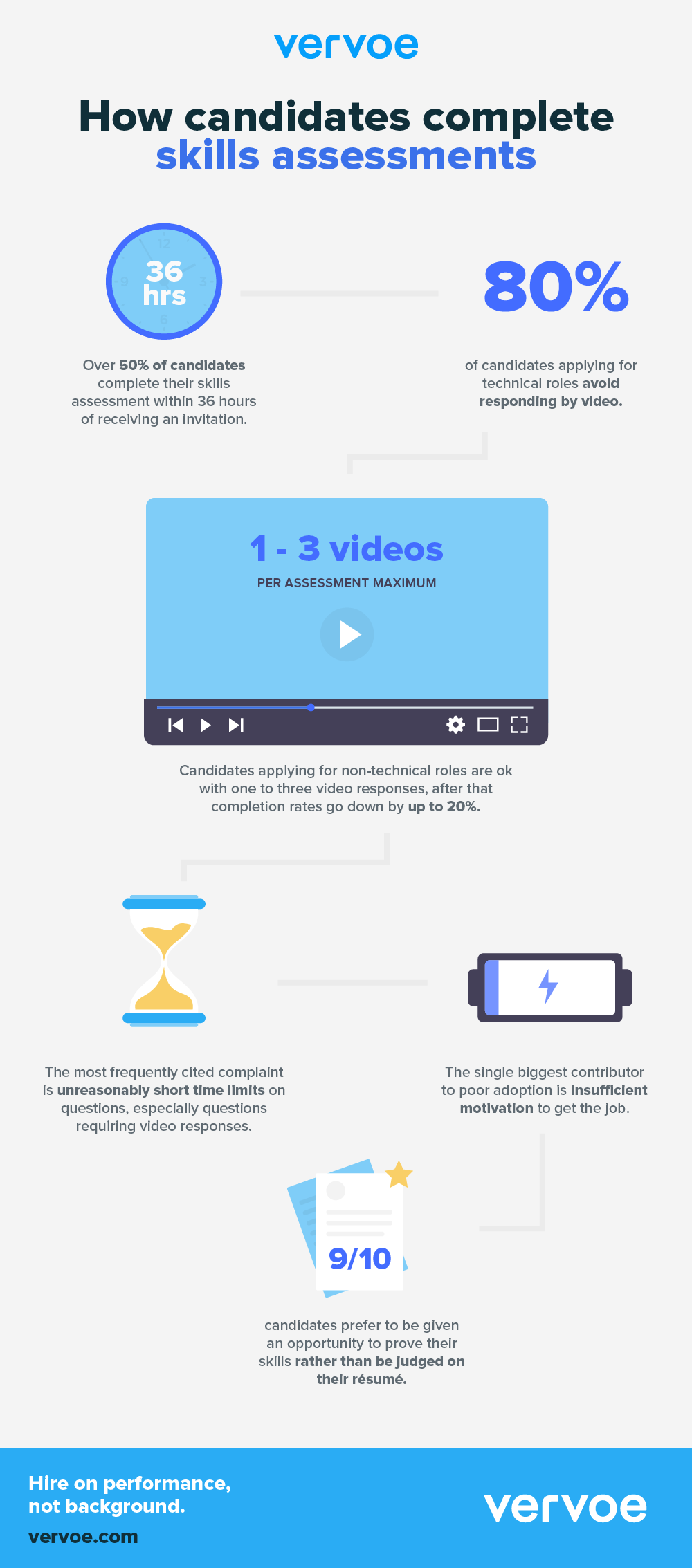We analyzed how more than 4,000 companies use skills assessments on Vervoe, particularly employer and candidate preferences, and wanted to share the results with you. Here are some of the most interesting things we learned:
COMPANIES
Hiring funnel
The first step companies tend to replace with skills assessments is phone screening. Intuitively this makes sense because it’s a manual process that is very time-consuming. Instead, recruiters can avoid screening altogether and review candidates after they’ve completed a series of job-related tasks.
Many companies have been able to consolidate several steps into one and reduce the number of steps in their process. This reduces the burden for candidates. As a result, the average number of stages in a hiring funnel is between three and four.
Nearly 70% of companies are using a skills assessment at the top of the hiring funnel. This is consistent with the removal of phone screening, which is typically a top of funnel activity.
While corporations often use skills assessments at the top of the funnel, the companies most likely to use assessments at the bottom of the funnel are staffing firms.
Content and grading
Over 80% of companies use a skills assessment that is uniquely tailored to their requirements. Companies recognize that competency is context-dependent. A graphic designer at a startup is a different job to a graphic designer at a major accounting firm. While there is overlap in functional skills, the operating environments and success criteria are very different.
Over 90% of companies are using automated grading to make decisions. This indicates a willingness to trust AI-based assessment technology.
Of the companies that inquire about personality assessments, over 50% actually want to test soft skills, not personality. This suggests that companies are familiar with personality assessments but, when presented with other options, don’t always want to specifically assess personality.
The most frequently cited benefit of using skills assessments is improved pass-through rates due to increased confidence in decision making.
Candidate adoption
The roles with the highest volumes of candidates are call centers, junior digital marketing, and graduate roles.
Very few companies prioritize candidate adoption when choosing assessment content for the first time. However, when presented with data about poor adoption resulting from their content choice, companies choose lower-friction assessments nine times out of ten.
The most frequently cited objection to using skills assessments is the fear of candidate drop off.

CANDIDATES
Video
Over 80% of candidates applying for technical roles avoid responding by video.
Candidates applying for non-technical roles are ok with one to three video responses after that completion rates go down by up to 20%.
The most frequently cited complaint is unreasonably short time limits on questions, especially questions requiring video responses.

Motivation
Over 50% of candidates complete their skills assessment within 36 hours of receiving an invitation.
The single biggest contributor to poor adoption is insufficient motivation to get the job.
More than nine out of ten candidates prefer to be given an opportunity to prove their skills rather than be judged on their résumé.
The most frequently cited benefit of taking a skills assessment is the opportunity to be judged based on a realistic sense of the role.
AUTHOR
One thought on “How Companies Use Skills Assessments”
Comments are closed.